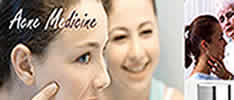Doctors usually treat heart failure with a combination of medications. Depending on your symptoms, you might take one, two or more of these drugs. Several types of drugs have proved useful in the treatment of heart failure. They include:
Angiotensin-converting enzyme (ACE) inhibitors. These drugs help people with heart failure live longer and feel better. ACE inhibitors are a type of vasodilator, a drug that widens or dilates blood vessels to lower blood pressure, improve blood flow and decrease the workload on the heart. Examples include enalapril (Vasotec), lisinopril (Prinivil, Zestril) and captopril (Capoten). ACE inhibitors also blunt some of the effects of hormones that promote salt and water retention. ACE inhibitors can cause an irritating cough in some people. It may be best to put up with the cough, if you can, to gain the medication's benefits. But be sure to discuss this with your doctor. Switching to another ACE inhibitor or an angiotensin II receptor blocker (ARB) may relieve the problem.
Angiotensin II (A-II) receptor blockers (ARBs). These drugs, which include losartan (Cozaar) and valsartan (Diovan), have many of the beneficial effects of ACE inhibitors, but they don't cause a persistent cough. They may be an alternative for people who can't tolerate ACE inhibitors.
Digoxin (Lanoxin). This drug, also referred to as digitalis, increases the strength of your heart muscle contractions. It also tends to slow the heartbeat. Digoxin reduces heart failure symptoms and improves your ability to live with the condition.
Beta blockers. This class of drug slows your heart rate and reduces blood pressure. Examples include carvedilol (Coreg), metoprolol (Lopressor) and bisoprolol (Zebeta). These medicines also reduce the risk of some abnormal heart rhythms. Beta blockers may reduce signs and symptoms of heart failure and improve heart function.
Diuretics. Often called water pills, diuretics make you urinate more frequently and keep fluid from collecting in your body. Commonly prescribed diuretics for heart failure include bumetanide (Bumex) and furosemide (Lasix). The drugs also decrease fluid in your lungs, so you can breathe more easily. Because diuretics make your body lose potassium and magnesium, your doctor may also prescribe supplements of these minerals. If you're taking a diuretic, your doctor will likely monitor levels of potassium and magnesium in your blood through regular blood tests.
Aldosterone antagonists. These drugs include spironolactone (Aldactone) and eplerenone (Inspra). They are primarily potassium-sparing diuretics, but they have additional properties that help the heart work better, may reverse scarring of the heart and may help people with severe heart failure live longer. Unlike some other diuretics, spironolactone can raise the level of potassium in your blood to dangerous levels.
A medication called BiDil is a single pill that combines hydralazine and isosorbide dinitrate — both of which dilate and relax the blood vessels. BiDil increases survival when added to standard therapy in black people with advanced heart failure. This is the first drug studied and approved for a specific racial group. Further studies will be necessary to determine if this combination medicine will be helpful for others with heart failure.
You'll probably need to take two or more medications to treat heart failure. Your doctor may prescribe other heart medications as well — such as nitrates for chest pain, a statin to lower cholesterol or blood-thinning medications to help prevent blood clots — along with heart failure medications.
You may be hospitalized for a few days if you have a flare up of heart failure symptoms. While in the hospital, you may receive additional medications such as inotropes (dobutamine, milrinone) and intravenous (IV) vasodilators (IV nitroglycerin). These drugs work quickly to help your heart pump better and relieve your symptoms. You may also receive supplemental oxygen through a mask or small tubes placed in your nose. If you have severe heart failure, you may need to use supplemental oxygen long term.
People hospitalized with severe heart failure may be given an intravenous drug called nesiritide (Natrecor). Nesiritide is a synthetic version of a naturally occurring hormone in the body called brain natriuretic peptide. BNP is secreted in high levels by the heart when it's overloaded with pressure and its volume is expanded. However, it's not clear if nesiritide is better than other intravenous medications for severe heart failure. Studies are ongoing to evaluate the safety and effectiveness of nesiritide in heart failure.


